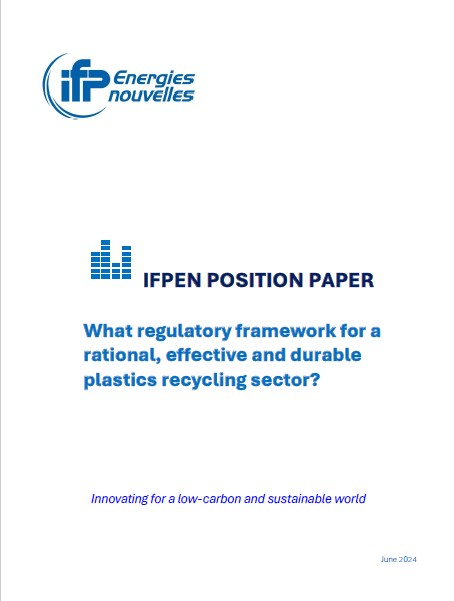23.07.2024
15 minutes of reading
Discover in detail IFPEN's position and strategic recommendations for addressing the major regulatory challenges related to plastics recycling.
The growing demand for plastic poses major environmental challenges, including the impacts of plastic production and waste, as well as the extensive use of fossil resources. To address these challenges, improving the end-of-life management of plastic products is crucial, relying on the principles of the circular economy: Reduce, Reuse, and Recycle.
Plastic recycling is essential for limiting on one side the use of fossil resources and, on the other side, improve use of plastic waste. Nowadays, most recycled plastic is derived from mechanical recycling which has been continuously developing over the last 30 years.
To move forward and increase our recycling capacities, we need new technologies based on advanced recycling (physical and chemical). These new processes can eliminate additives and impurities. Furthermore they enable infinite recycling in close loop. They are therefore complementary to mechanical recycling, Over more than 10 years, IFPEN has been deeply involved in the development of new advanced recycling processes to address the needs.
However, the large-scale deployment of these processes requires a favorable regulatory framework.
IFPEN has developed a position paper outlining several recommendations to support the development of plastics recycling:
- Mandate recycled content in plastic products to create a market for recycled material,
- Set criteria for end-of-waste status to favor feed preparation and to facilitate downstream processing by chemical or petrochemical platforms,
- Introduce a Mass balance system to encourage plastic to plastic recycling,-Favor circularity at the polymer level to promote economies of scale and reduce production costs,
- Support the most environmentally friendly existing sectors while considering technological advancements
> Download the Position Paper (PDF - 580 Ko)







